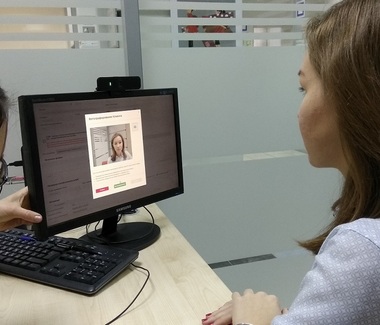
The Cabinet is willing to limit remote access to some public services if without biometrics
They admit slow growth rate of Unified Biometric System database, which currently contains 164 thousand records.

The government expects to increase the number of records to 70 million in two years – that is exactly the number of confirmed profiles on the Public Services portal. To achieve this, it is planned to increase the number of data collection methods, reports the Kommersant newspaper with reference to its sources. In particular, the authorities want to encourage people to take biometrics at MPFCs (Multifunctional Public Services Centers) and through a mobile application.
Now it is possible to submit data to the UBS only in banks (228 financial institutions are currently providing this opportunity). At the same time, the law does not stipulate the number of branches where this service should be available. However, the Bank of Russia has prepared a draft document that will oblige banks with a universal license to collect biometrics in 80% of their branches in communities with over 1,000 residents.
According to the newspaper, the Ministry for Digital Development wants to create the possibility to use the UBS in various spheres of legal relations. Rostelecom reported that Russians would be able to use their biometric data to pay for goods and services, attend public events, conclude agreements with mobile operators, receive notary services and take intermediate exams at educational institutions remotely.
Later, the Ministry for Digital Development issued a memo saying that the biometric data collection would not affect access to public services. In addition, the Ministry said that the use of the UBS would simplify this access. This is related to the fact that the new technology will in many cases make it possible to abandon the electronic signature when submitting electronic documents, said Yuri Parfenov, director of the strategic projects implementation department of the Ministry for Digital Development, Communications and Mass Media. He added that at present, the massive involvement of citizens in electronic interaction is hindered mainly by the need to acquire an electronic signature and the inability to use it on mobile devices.